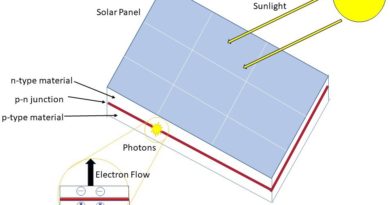Energy Audit – Diagnosis of Energy Consumption
While I was on the Marketing meeting with the chief engineer of a prominent private hospital in Delhi recently, one of his colleagues suddenly asked me What is the benefit of having Energy Audit. I thought for a moment what could be best answer and equated my answer in line with the Hospital Industry as below: –
“we come to hospital sometime for health check-up or diagnosis; Energy audit is also a diagnosis of the establishment about the energy consumption with the objectives like pinpointing the areas for further energy efficiency improvement; so it is called Diagnostic Study also “. It means Energy Audit is the systematic approach for decision making in the area of energy management.
As per the Energy Conservation Act, 2001, Energy Audit is defined as “the verification, monitoring and analysis of use of energy including submission of technical report containing recommendations for improving energy efficiency with cost benefit analysis and an action plan to reduce energy consumption”.
So, the Energy Audit is useful for the following:-
- In any industry, the three top operating expenses are often found to be energy (both electrical and thermal), labour and materials. Any improvement can lead to cost reduction that is increase in profitability.
- Energy Audit will help to understand more about the ways energy and fuel are used in any industry and help in identifying the areas where waste can occur and where scope for improvement exists.
- The Energy Audit would give a positive orientation to the energy cost reduction, preventive maintenance and quality control programmes which are vital for production and utility activities
- In general, Energy Audit is the translation of conservation ideas into realities, by lending technically feasible solutions with economic and other organizational considerations within a specified time frame.
- Energy Audit is to determine ways to reduce energy consumption per unit of product output or to lower operating costs. Energy Audit provides a ” bench-mark”(Reference point) for managing energy in the organization and also provides the basis for planning a more effective use of energy throughout the organization.
Energy Audit is classified as Preliminary and Detailed Audit.
Preliminary Energy Audit
It is also called Walk Through Audit:
- Establish energy consumption in the organization
- Estimate the scope for saving
- Identify the most likely (and the easiest areas for attention
- Identify immediate (especially no-/low-cost) improvements/ savings
- Set a ‘reference point’
- Identify areas for more detailed study/measurement
- Preliminary energy audit uses existing, or easily obtained data
Detailed Energy Audit
A comprehensive audit provides a detailed energy project implementation plan for a facility, since it evaluates all major energy using systems.
This type of audit offers the most accurate estimate of energy savings and cost. It considers the interactive effects of all projects, accounts for the energy use of all major equipment, and includes detailed energy cost saving calculations and project cost.
In a comprehensive audit, one of the key elements is the energy balance. This is based on an inventory of energy using systems, assumptions of current operating conditions and calculations of energy use. This estimated use is then compared to utility bill charges.
Energy Audit is Mandatory
As per the provision of the Energy Conservation (EC) Act 2001, the Central Government notified the criteria for Designated Consumers( DCs) under which industrial units from 9(Nine) energy intensive sectors (Aluminium, Cement, Chlor-Alkali, Fertilizer, Iron & Steel, Paper & Pulp, Railways, Thermal Power and Textile) have been notified as Designated Consumers. The Government has notified the mandatory Energy Audit in 2014 for the Designated Consumers to help in identifying various energy saving opportunities in energy intensive industries & other establishments. As per the Ministry of Power notification, 2017, Commercial buildings or establishments (Hotels) – Units of such hotels under commercial buildings or establishments having energy consumption of 1,000 metric tonne of oil equivalent (MTOE) per year and above have also been considered to undertake mandatory energy audit.
References:
[1] Bureau of Energy Efficiency, India, https://beeindia.gov.in/content/designated-consumers




Pingback: Path to Energy Independence through Local Support Services - SolarPost
Pingback: Energy Saved = Money Saved : Fans are Low-Hanging-Fruit - SolarPost